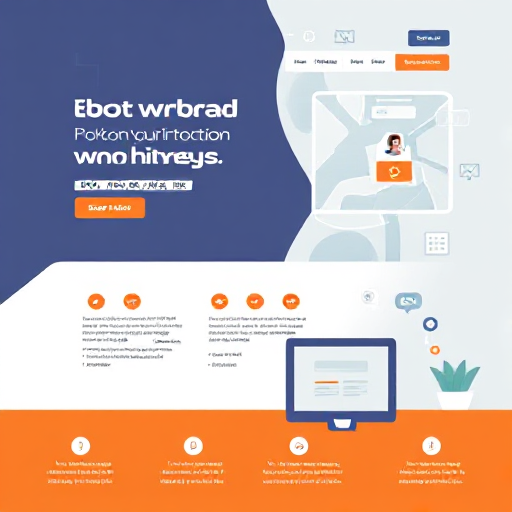Blogging vs. Affiliate Marketing: Understanding the Differences
In the world of digital content creation, two terms you’ll often encounter are blogging and affiliate marketing. While both can be used to generate income online, they serve different purposes and require different approaches. If you’re considering diving into the world of online earning, understanding the key differences between blogging vs. affiliate marketing can help you decide which path is best suited for your goals.
Make Money in 7 Days as an Entertainment Blogger and Affiliate Marketer – The Easy Way
What is Blogging?
Blogging is the practice of writing articles, posts, or other written content on a website or blog. It is primarily focused on providing valuable, informative, or entertaining content for readers. Bloggers can cover a wide range of topics, from personal experiences to specialized niches like fashion, tech, finance, travel, and more.
Income from Blogging: Blogging can be monetized in various ways. Here are a few common methods:
- Ad Revenue: Bloggers can earn money through ads displayed on their site. Google AdSense is a common program used to place ads, and bloggers earn revenue based on ad views or clicks.
- Sponsored Posts: Once a blog has a strong readership, brands may pay for sponsored posts, where bloggers write about or promote their products or services.
- Selling Products or Services: Bloggers can sell digital products such as eBooks, online courses, or physical items related to their niche. Consulting or coaching services are also common revenue sources.
- Affiliate Marketing: Blogging is often a platform where affiliate marketing is utilized, but it’s just one of the ways a blogger can monetize their content.
Make Money in 7 Days as an Entertainment Blogger and Affiliate Marketer – The Easy Way
What is Affiliate Marketing?
Affiliate marketing, on the other hand, is a performance-based marketing strategy where you promote a company’s product or service and earn a commission on the sales or leads generated from your promotion. Unlike traditional advertising, affiliate marketers are not directly paid by the company upfront but instead earn money through their referrals.
Income from Affiliate Marketing: Affiliate marketing income is earned when someone clicks on your affiliate link (which is tracked) and makes a purchase. There are several types of affiliate marketing structures:
- Pay-per-Sale (PPS): You earn a commission when a sale is made through your affiliate link.
- Pay-per-Click (PPC): You earn money based on how many clicks your affiliate link receives, regardless of whether a purchase is made.
- Pay-per-Lead (PPL): You earn a commission when a user signs up for a service or provides their contact information (such as an email address) through your link.
Make Money in 7 Days as an Entertainment Blogger and Affiliate Marketer – The Easy Way
Affiliate marketers usually promote products via blogs, websites, social media, or email marketing. Successful affiliate marketers choose products or services that align with their audience’s interests and needs.
Key Differences Between Blogging and Affiliate Marketing
- Focus and Purpose:
- Blogging is about creating and sharing valuable content that informs, educates, or entertains your audience. While affiliate marketing can be a part of blogging, blogging itself can generate income through multiple avenues such as ads and selling products.
- Affiliate Marketing is focused specifically on promoting third-party products or services and earning commissions. It is a revenue-generating activity that can be done within blogs or independently.
- Monetization Opportunities:
- Blogging offers multiple ways to monetize content, including ads, sponsored posts, selling your own products, and affiliate marketing. It’s a more diversified income stream.
- Affiliate Marketing relies on commissions from third-party sales. The income from affiliate marketing depends entirely on your ability to successfully drive sales or leads.
- Required Skills:
- Blogging requires writing skills, an understanding of SEO (Search Engine Optimization), and the ability to engage with an audience through content. Bloggers need to be content creators and marketers, constantly creating fresh posts and promoting their content.
- Affiliate Marketing requires an understanding of how to select the right products to promote, knowledge of conversion optimization, and effective ways to promote affiliate links, such as via email marketing or social media. It’s a marketing-focused skill set.
- Time Investment:
- Blogging can take time to build an audience, especially if you’re focusing on SEO. It requires ongoing content creation and website management. The return on investment can take a while, but once the blog is established, it can generate passive income over time.
- Affiliate Marketing can be more immediate if you’re promoting high-demand products or leveraging large audiences through channels like social media. However, to build a sustainable affiliate marketing income, you still need to build a platform, which could take time, especially if starting from scratch.
- Long-Term vs. Short-Term Earnings:
- Blogging is often a long-term game. Successful blogs require consistent effort over time to build traffic and authority. As your audience grows, your blog’s income potential increases through organic traffic, affiliate sales, and other monetization methods.
- Affiliate Marketing has the potential for both short-term and long-term earnings. With the right products, affiliate links, and marketing efforts, you can earn money relatively quickly. However, for long-term success, affiliate marketers need to establish credibility and a consistent traffic flow to keep generating income.
- Control and Ownership:
- Blogging allows full control over your content, your audience, and your monetization strategies. Your blog is your own, and you control what’s shared and how it’s presented.
- Affiliate Marketing can be somewhat limiting because you are dependent on third-party companies for income. If the company changes its affiliate program, reduces commissions, or discontinues the product, your income can be affected.
Make Money in 7 Days as an Entertainment Blogger and Affiliate Marketer – The Easy Way
Can You Combine Blogging and Affiliate Marketing?
Absolutely! In fact, many bloggers use affiliate marketing as one of their main income sources. By adding affiliate links to your blog posts, you can earn commissions by promoting relevant products or services to your readers. This combination allows bloggers to generate income while providing valuable content to their audience.
In the blogging vs. affiliate marketing debate, it’s important to understand that blogging is a broader content creation practice, while affiliate marketing is a specific income-generating strategy that can be used within a blog. If you’re focused on creating long-form, informative content and building an audience over time, blogging is the way to go. If you prefer focusing on promoting products and earning commissions through sales, affiliate marketing could be a more direct and efficient income strategy.
Make Money in 7 Days as an Entertainment Blogger and Affiliate Marketer – The Easy Way
The good news is that you don’t have to choose between the two. Combining blogging with affiliate marketing is a highly effective way to maximize your online earnings. Both can complement each other, allowing you to leverage your content while generating passive income.







